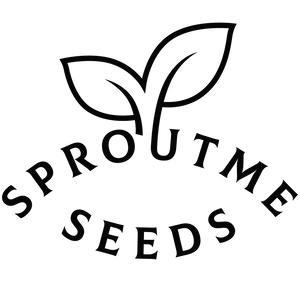Cauliflower
Cauliflower is a versatile and nutritious vegetable, rich in vitamins, minerals, and antioxidants. Growing your own cauliflower ensures access to fresh, flavorful produce that can be enjoyed in a variety of culinary dishes, from roasted cauliflower to cauliflower rice.
Preparing for Growing:
- Selecting a planting location: Choose a sunny spot with well-drained soil and good air circulation.
- Soil preparation: Amend soil with compost or well-rotted manure to improve fertility and drainage.
- Purchasing or preparing containers/pots: If growing in containers, choose large, deep pots with drainage holes.
Starting from Seeds Indoors:
- Seed preparation: No special preparation needed.
- Choosing suitable pots/containers: Use seed trays or small pots filled with seed-starting mix.
- Sowing and caring for seeds indoors: Sow seeds ¼ inch deep and keep soil consistently moist. Provide warmth and light for optimal germination.
- Transplanting to larger containers if necessary: Once seedlings have 3-4 true leaves, transplant them into larger containers to prevent overcrowding.
Starting from Seeds Outdoors:
- Soil preparation: Prepare a fine seedbed by removing debris and loosening the soil.
- Selecting appropriate timing and method for outdoor sowing: Sow seeds directly into the garden 2-3 weeks before the last frost date in your area.
- Caring for seeds outdoors: Keep soil consistently moist until seeds germinate, which typically takes 7-14 days.
Growing in Containers/Pots:
- Selecting suitable plants for containers: Choose compact, dwarf varieties suitable for container growing.
- Container and soil preparation: Ensure containers have good drainage and use a quality potting mix enriched with compost.
- Sowing or transplanting plants into containers: Plant seeds or transplant seedlings into containers, spacing them according to package instructions.
- Caring for container plants: Water regularly to keep soil evenly moist and fertilize every 3-4 weeks with a balanced fertilizer.
Transplanting to Garden:
- Soil and planting site preparation: Prepare garden soil by incorporating compost and ensuring proper drainage.
- Correct timing and method for transplanting: Transplant seedlings when they have 4-6 true leaves, spacing them 18-24 inches apart.
- Post-transplant care: Keep soil evenly moist and provide a layer of mulch to retain moisture and suppress weeds.
Plant Care:
- Watering: Cauliflower requires consistent moisture, so water regularly, especially during dry spells.
- Fertilizing: Apply a balanced fertilizer every 3-4 weeks to promote healthy growth and development.
- Weeding: Keep the area around cauliflower plants free of weeds to reduce competition for nutrients.
- Pest and disease management: Monitor for pests such as cabbage worms and aphids, and diseases like clubroot and powdery mildew. Use organic pest control methods when needed.
Harvesting:
- Determining when plants are ready for harvest: Harvest cauliflower heads when they reach full size and feel firm to the touch, typically 2-3 months after planting.
- Harvesting and storage guidelines: Cut cauliflower heads from the stem with a sharp knife, leaving some outer leaves attached. Store harvested cauliflower in the refrigerator for up to a week.
When to Start from Seeds by USDA Plant Hardiness Zones:
- USDA Zones 3-7: Start seeds indoors 6-8 weeks before the last frost date, or sow directly outdoors in early spring for a fall harvest.
- USDA Zones 8-10: Start seeds indoors in late summer for a fall harvest.
Fast Facts:
- Planting depth: ¼ inch
- Seed spacing: 1 inch
- Plant spacing: 18-24 inches
- Number of seeds per pot/container: 1-2 seeds per pot
- Water preferences: Evenly moist soil
- Sun preferences: Full sun
- Soil type and other important factors: Well-draining, fertile soil rich in organic matter
- Companion Planting: Cauliflower grows well with carrots, onions, and herbs like thyme and sage.
- Temperature Preference: Cool weather crop, prefers temperatures between 45-75°F.
- Days to Germination: 7-14 days
- Days to Harvest: 60-100 days, depending on variety and growing conditions.







